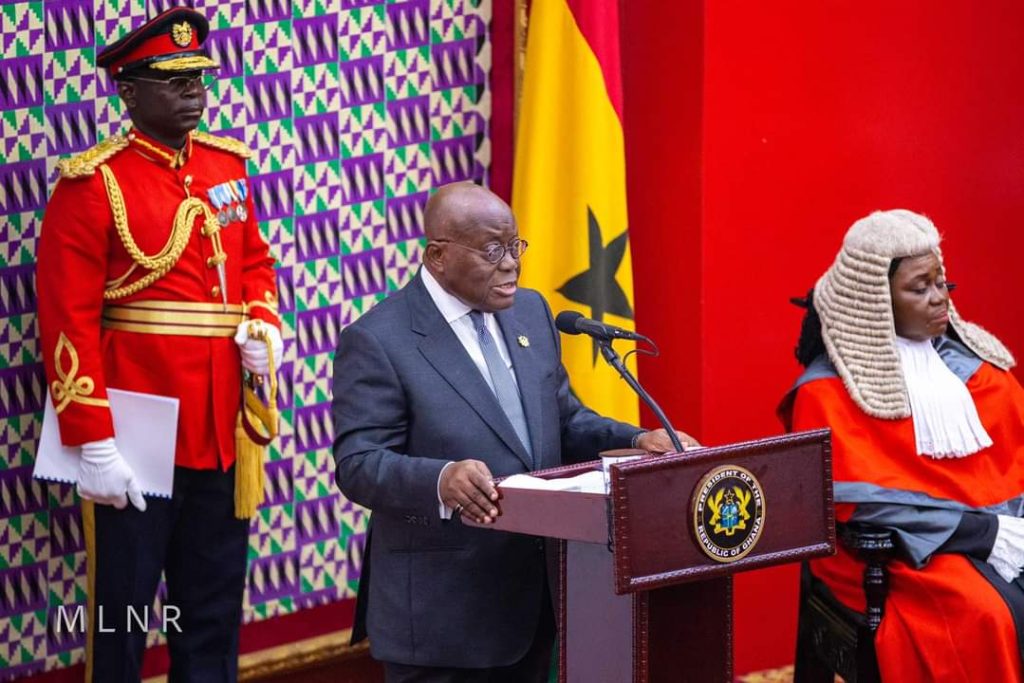
Women’s rights advocates in Ghana are celebrating the long-awaited enactment of a gender equity law, signed into effect by President Nana Akufo-Addo on Thursday. This moment marks the culmination of a nearly 30-year journey, starting from the initial proposal in 1998, during which the bill experienced numerous delays as it passed through various parliamentary sessions.
With this new law, Ghana joins other African nations such as Rwanda, Uganda, and Mozambique, which have established affirmative action policies aimed at ensuring women’s representation in decision-making bodies. These countries typically set a 30% quota for women in government and state agencies, and Ghana’s legislation aims to build on this foundation.
The recently enacted Affirmative Action (Gender Equality) Act 2024 is poised to significantly impact women’s roles in government, security, commerce, and other key sectors. The law seeks to enhance women’s participation in public life, setting a target of increasing female representation to a minimum of 30% by 2026 and ultimately achieving 50% by 2030, aligning with the United Nations Sustainable Development Goals.
Under this law, trade unions are required to maintain gender-balanced representation on their executive boards. Additionally, private companies that adhere to these guidelines will benefit from tax incentives, promoting a more inclusive workforce.
Following the law’s passage in July, Speaker of Parliament Alban Bagbin emphasized the importance of lawmakers committing to these reforms. He expressed hope that such initiatives would help create a more equitable society, allowing women to contribute more fully to national development.
Enforcement and Consequences
The law introduces strict penalties for violations, including fines and imprisonment for up to 12 months for gender-based discrimination, hate speech, and intimidation. Any actions that obstruct or undermine the implementation of the law are considered offenses. Furthermore, trade unions that fail to comply risk losing their registered status, highlighting the law’s serious approach to enforcement.
Reactions and Concerns
Many female lawmakers have hailed the law as a strong step toward empowerment. Abla Dzifa Gomashie, a Member of Parliament, voiced her optimism that the legislation would help dismantle cultural and economic barriers faced by women, including those from minority groups and the disabled community. She stressed the need for immediate advocacy to educate the public and institutions about the law’s implications.
However, concerns linger regarding enforcement. Some activists worry that political parties may not fulfill their obligations under the new law. Dinah Adiko, a former consultant for Ghana’s gender ministry, expressed skepticism about the implementation and monitoring of the law, asking, “What are the powers to actively enforce this law?”
Limited Backlash
Public opposition to the law has been minimal. At a recent press conference, a journalist raised concerns about potential discrimination against men under the guise of promoting gender equality. This notion was dismissed by Gender Minister Dakoa Newman, who emphasized that Ghanaian women are more than qualified to occupy leadership roles.
Delays in Legislation
The protracted timeline for the bill’s passage is attributed to both of Ghana’s main political parties, the National Democratic Congress (NDC) and the New Patriotic Party (NPP), which have historically failed to prioritize the bill despite pledging support in their campaigns. The current Gender Minister reintroduced the bill to Parliament earlier this year, following previous setbacks that stalled its progress.
Last year, the parliamentary speaker indicated a desire to pass the bill but stressed the need for comprehensive stakeholder consultation to refine the legislation. Adiko recalled her experience in 2014, when the bill reached cabinet approval only to be delayed by a change in government.
Impact on Upcoming Elections
With Ghana’s general elections on the horizon in December, there are high hopes that the new law will encourage more women to pursue political office. Currently, only two women have submitted nominations for the presidency, a decrease from the previous election cycle.
The electoral commission is now required to ensure that political parties meet the established quotas for female candidates and to implement measures that enhance women’s participation in both candidacy and voting processes. Gomashie anticipates that political parties will take proactive steps to create an inclusive environment for women in upcoming elections.
In summary, while Ghana’s new gender equality law represents a significant advancement for women’s rights, its successful implementation will depend on robust enforcement and the commitment of political leaders to foster an inclusive political landscape






